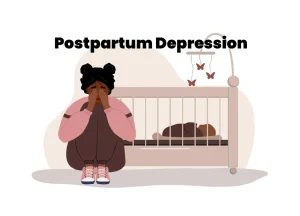Usually, these stories are created to influence people’s views, push a political agenda or cause confusion.
Traditionally we get our news from trusted sources, journalists, and media outlets that are required to follow strict codes of practice. However, the internet has enabled a whole new way to publish, share and consume information and news with very little regulation or editorial standards.
Many people now rely on news from social media networks and it can be difficult to tell whether these stories are credible or not. Trusted websites are vulnerable to disseminating false news. Several websites and pages using similar names as those of reputable organizations are usually created to co-opt readers into visiting their pages and consuming false information.
Careful and intentional measures need to be taken in how we consume and reproduce information. Below are guiding tips expected to help us navigate the dilemma of information-sharing.
Types of fake information
- Disinformation: False information deliberately created to cause harm to a person, social group, organisation, or country.
- Misinformation: False information not created with the intention of causing harm.
- Mal-information: Information that is based on reality, used to inflict harm on a person, social group, organisation, or country.
How to avoid fake news
Here are a few more things to think about when it comes to avoiding fake news:
- Keep biases in mind: Read news from a wide variety of sources to ensure that you are getting multiple perspectives.
- Ensure that breaking news are verified: Events conveyed as they are happening are likely to be misreported, leading to the spread of untrue or unconfirmed details.
- Question content that provokes strong emotion: Fake news are often constructed specifically to encourage a strong reaction. Be wary of headlines that evoke such emotions regarding a particular topic or event.
- Be aware that fake news can come in many forms: Fake news can spread from different sources. Podcasts, television, print mediums, word-of-mouth, and academic channels can all harbour inaccurate information.
- Multiple Sources: Don’t just rely on a single article. The more you read from various sources, the more likely you can draw accurate conclusions. Also, consider diverse sources and perspectives.
Effects of Fake News on Mental Health
Since fake news is intended to manipulate public opinion, it is designed to provoke an emotional response from a reader/viewer. It can elicit strong feelings such anger, suspicion, anxiety, and even depression.
When our thoughts are distorted, our actions are likewise affected. Our mental wellbeing is directly linked with our thoughts and feelings, and over-exposure to such heightened emotions can impact our mental health in the following ways:
- Inability to think logically: Exposure to fake news content, especially those targeted at causing harm to a person or social group, can elicit strong emotions that may adversely affect our abilities to think logically.
- Excess Anger: fake news can increase our stress levels, thereby causing a direct increase in our irritability and sensitivity. These can increase our temperaments and cause us to resort to anger as an emotional response to the stress.
- Threatened social relationships: Our strong reactions to negative news can influence our social relationships. For instance, friends and loved ones may begin to avoid you if you are constantly angry and/or irritable.
- Anxiety: One of the common reactions to misinformation is excess worries and fears about a certain situation or event. This excessive worry is unhealthy, as it can potentially affect one’s ability to function optimally. The victims of these misinformation are also likely to experience anxiety, because they may become targets of slander.
- Depression: Just as with anxiety, victims of harmful spread of information are prone to experiencing sadness. This is due to the responses and threats which they may get from readers and viewers. Without adequate social support or intervention, the sadness can be prolonged – leading to depression and possibly suicide.
If you or anyone you know is a victim of cyberbullying, please reach out to Lagos Lifeline for help.
If you or anyone you know is experiencing feelings of anxiety or depression, please call us on 090-9000-6463 for support



